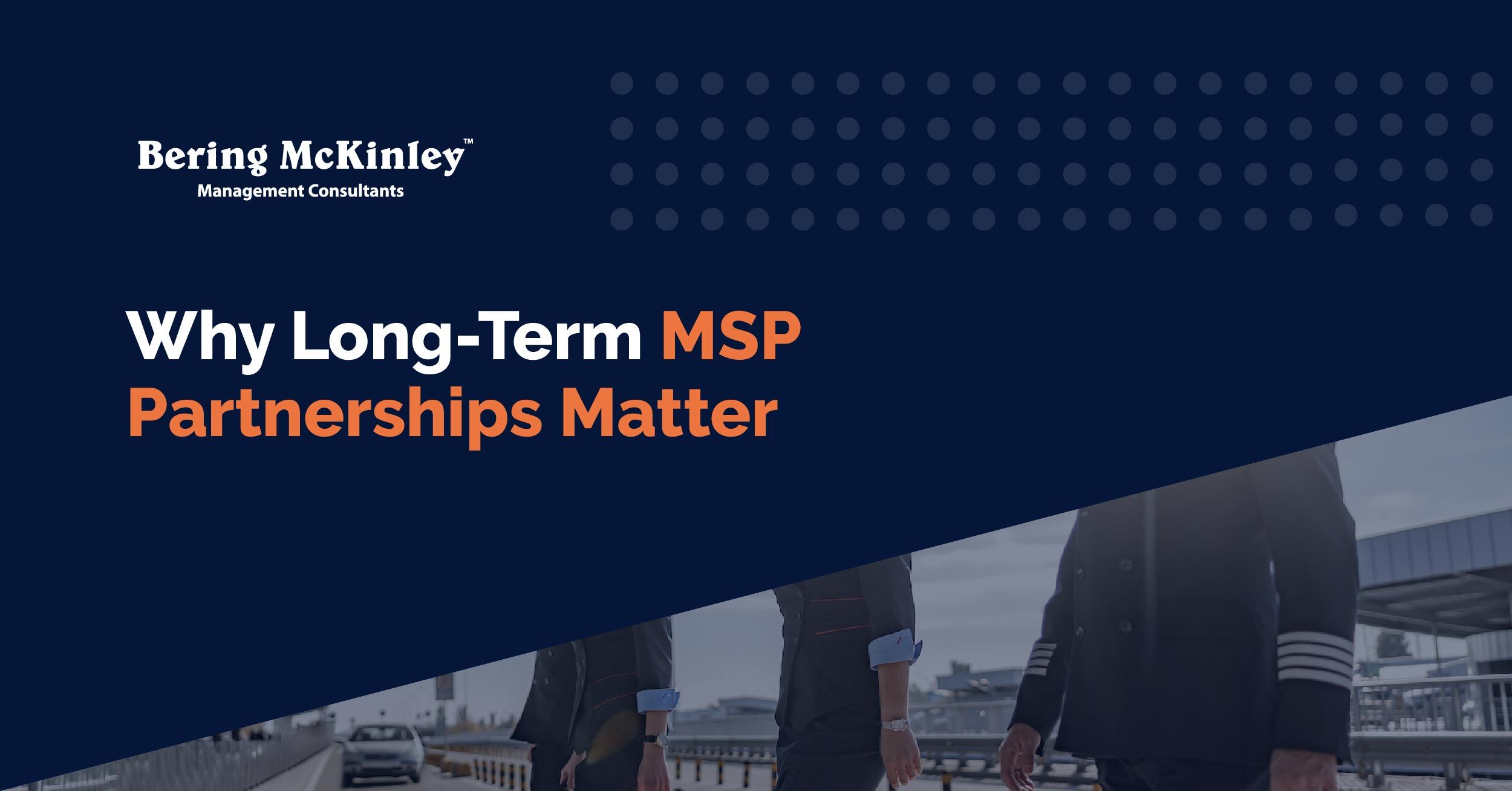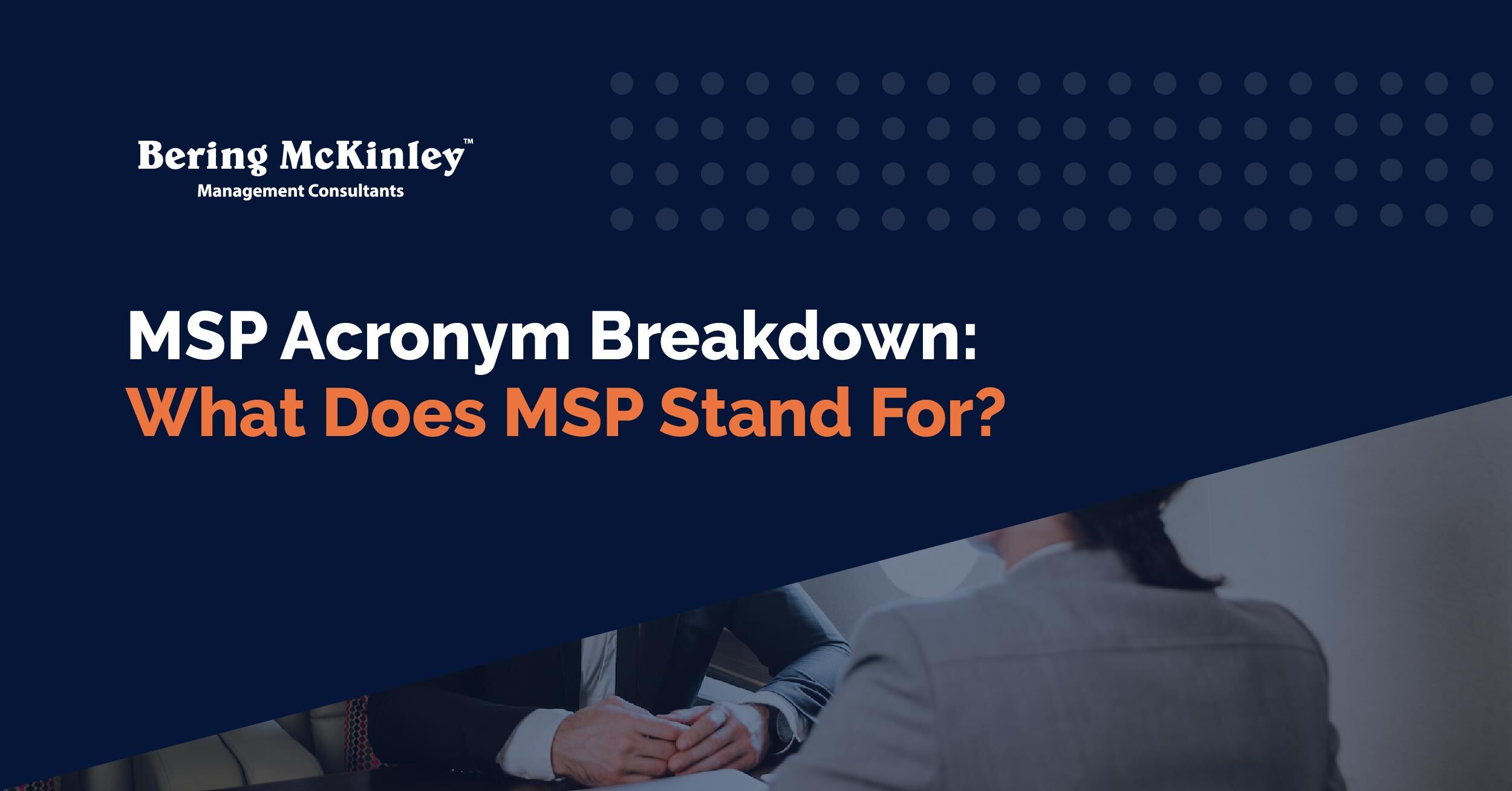The Benefits of Choosing a Local Managed Service Provider: Why Proximity Matters for Your Business
When it comes to Managed Service Providers (MSPs), businesses today have countless options. These IT experts keep businesses running smoothly by...
3 min read
 Josh Peterson
:
Updated on June 16, 2025
Josh Peterson
:
Updated on June 16, 2025

Think cost is the most important factor when choosing a managed service provider (MSP)? Think again. For many businesses, the relationship with their MSP resembles a long-term partnership rather than a one-off transaction. And like any good partnership, success depends on trust, communication, and shared goals—not just numbers on an invoice.
But how do you know if an MSP is a good long-term fit for your business? What should you prioritize beyond the price tag? This blog explores why long-term MSP partnerships are critical, what qualities you should look for, and how to build a relationship that scales with your business.
Whether you're an MSP owner, an IT manager, or a small business leader, this guide will help you find the perfect partner for the road ahead.
Many businesses make MSP decisions based solely on price—but the cheapest option isn’t always the most cost-effective in the long run. To truly understand the value of your investment, you need to weigh hidden costs against potential savings.
Here’s what often gets overlooked:
A long-term MSP partner could save you thousands (even millions) over time. Here’s how:
When evaluating potential MSPs, think beyond the initial contract price. Consider the long-term impact on your budget, operations, and peace of mind.
Picking the right MSP for a long-term partnership involves more than vetting their pricing structure. Here are some of the most important traits to prioritize:
Clear and consistent communication is the foundation of any successful partnership. A great MSP should:
Your business will evolve over time, and your MSP should evolve with you. Look for providers that:
Technology evolves faster than most businesses can keep up. Ideal MSPs are industry leaders who:
Your MSP should demonstrate not only an investment in your technology but in the overall success of your organization. Look for partners who:
By focusing on these qualities, you’ll maximize the chances of finding an MSP that genuinely enhances your operations.
Even the best MSP can’t help your business if the relationship isn’t nurtured. Follow these steps to build a mutually beneficial partnership:
Set the tone early by:
A strong dialogue keeps both sides aligned and responsive.
Transparency is key to avoiding misunderstandings. When finalizing your contract, clarify:
A well-documented arrangement prevents surprises down the road.
The best MSPs act like an extension of your internal team. Strengthen alignment by:
When MSPs operate with your success in mind, the partnership thrives.
This is a partnership, not a set-it-and-forget-it service. Maintain active involvement by:
Success comes from collaboration, not delegation.
Choosing an MSP isn’t just about finding someone to fix broken systems or reduce IT burdens. It’s about building a long-term relationship that helps your business grow, adapt, and thrive.
MSPs with proactive communication, scalability, technical expertise, and goal alignment deliver more than services; they become strategic partners who share a stake in your success. And when you invest in nurturing these partnerships, you unlock their full potential—not just in savings and efficiency gains, but in your business’s ability to compete and innovate.
If you’re unsure how to choose a managed service provider that prioritizes long-term value over short-term gains, we’re here to help. Explore how Bering McKinley’s expert consultants can guide you toward building stronger, more impactful MSP relationships.

When it comes to Managed Service Providers (MSPs), businesses today have countless options. These IT experts keep businesses running smoothly by...

Managed Service Providers (MSPs) have become a critical component in today's business world, enabling companies to stay efficient, scalable, and...

Are you new to the Managed Service Provider (MSP) space or navigating the wild world of co-managed IT? If so, chances are that “competitive SLA”...